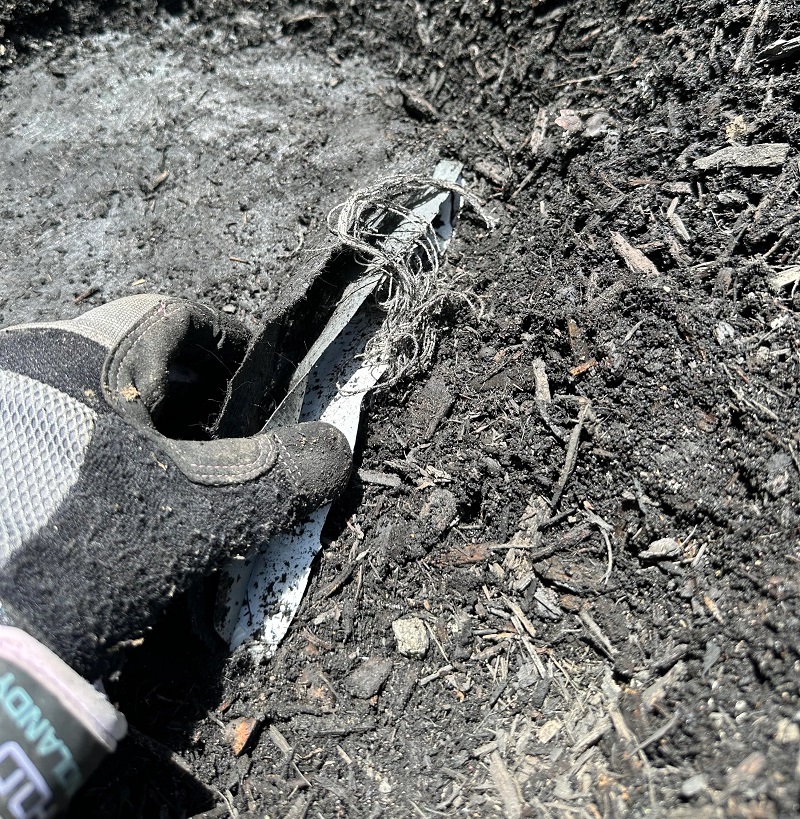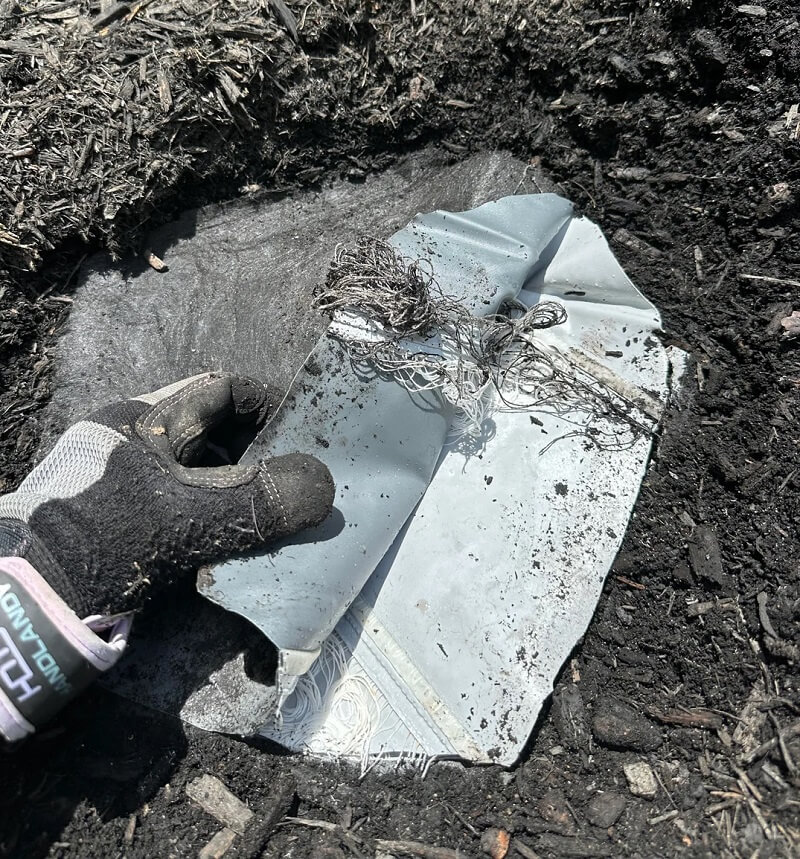A homeowner planting in their front garden expected to find certain things while digging — soil, worms, bugs, roots, and the like — but not plastic.
"Why is there layered plastic under my garden?" they wrote in the subreddit r/landscaping. "Came across these heavy layers of plastic and I can't imagine they are just to prevent weeds."


A photo showcased the thick, tarp-like sheets of woven plastic landscaping fabric, buried several inches below the surface.
Commenters jumped in immediately. "They are just to prevent weeds and it's an absolutely horrible practice," one person wrote. "Best thing to do would be to dig it all out, but that's a lot of work. Maybe tackle it in patches."
Other commenters had faced this landscaping nemesis as well. "When I first moved into my house … I found out that the yard sections along both sides of my house were completely covered in plastic tarps [which were causing flooding to my neighbors]," one person wrote. "I took all those out and threw them away and … [the] flooding has stopped."
Landscapers sometimes install a thick, smothering layer of plastic tarp to cut off weeds from the oxygen, water, and sunlight they need to grow — this could have happened with the original poster's previous owners.
The problem? The tarp also keeps those resources away from all the other, desired, plant growth. As both Treehugger and the University of Illinois Urbana-Champaign explain, this wreaks havoc on soil health, often in a lasting way.
Also, while it's often misleadingly described as "fabric" by brands, this landscaping material is generally made of plastic. According to Washington State University professor Linda Chalker-Scott, who holds a doctorate in horticulture, this means that the chemicals comprising the plastic break down over time. The chemicals then seep into the soil, poisoning microorganisms and plant roots.
"Weed fabric isn't worth it," one commenter concluded. In other words, it's a waste of time and money for consumers to buy and install it.
Instead, any landscaper with an overabundance of weeds is better off treating them with strategies that are safe for native plants, such as hand-pulling, natural herbicides, and natural mulches such as jute.
Join our free newsletter for easy tips to save more, waste less, and help yourself while helping the planet.









